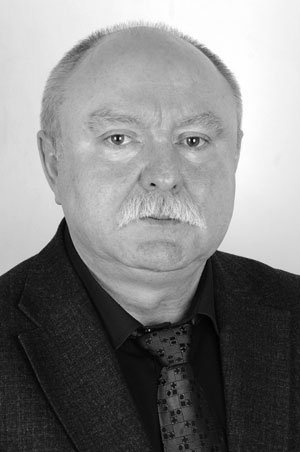Comparative effects of mental load impacts on sporting students with health impairment versus their healthy peers in academic process
Фотографии:
ˑ:
Teoriya i praktika fizicheskoy kultury №11 2016, pp. 86-88
UDC 796.011.3
Professor, Dr.Sc.Psych. B.P. Yakovlev1
Associate Professor, PhD V.V. Apokin1
Postgraduate N.R. Usaeva1
1Surgut State University, Surgut
e-mail: apokin_vv@mail.ru
The theoretical provisions and practical recommendations presently available in the reference literature, including the practical recommendations on the disabled students’ education and athletic training process optimizing and harmonizing – are quite general in fact, and it makes them difficult for practical implementation. The existing theory of inclusive education reports no substantiating empirical studies to assess the effects of mental stresses on the mental activity self-controls, psychomotor and psychophysiological functions in comparison with that of the healthy athletes and with due accounts of the age and gender specifics in an academic education environment. All these facts are indicative of the issue still being in need of detailed research. Therefore, studies of the effects of educational, physical and mental stresses in the academic professional education system with an emphasis on the highly-skilled university athletes with health impairments training process optimizing and harmonizing in terms of the academic curricula structure and quality – are highly topical at present
Keywords: university athletes with health impairments, academic process, mental stress, self-control, psychomotor functions .
References
- Balandin V.I., Bludov Y.M., Plakhtienko V.A. Prognozirovanie v sporte [Forecasting in sport]. Moscow: Fizkultura i sport, 1986, 192 p.
- Kiselev Y.Y. Psikhodiagnostika, orientirovannaya na otbor sportsmenov dlya podgotovki i uchastiya v sorevnovaniyakh [Psychodiagnostics focused on selection of athletes for training and competitive performance]. Psychology and modern sport. Moscow: Fizkultura i sport, 1982, pp. 79-88.
- Kossov B.B. Printsipy izucheniya psikhicheskikh sostoyaniy i problema samoregulyatsii deyatelnosti sportsmena [Principles of study of mental states and problem of athlete's activity self-regulation]. Psychology and modern sport. Moscow: Fizkultura i sport, 1982, pp. 51-58.
- Psikhicheskaya nagruzka v sporte vysshikh dostizheniy [Mental load in elite sports sphere]. Surgut: RIE SSUPC, 2007, 220 p.
- Yakovlev B.P., Babushkin G.D. Psikhologiya fizicheskoy kul'tury: uchebnik [Psychology of Physical Culture: Tutorial]. Moscow: Sport, 2016, 624 p.
- Psikhologo-pedagogicheskie metodiki v strukture podgotovki sportsmenov [Psychological and pedagogical techniques in athletic training structure. Study guide]. Omsk: SSUPC, 2015, 228 p.
- Usaeva N.R., Yakovlev B.P., Apokin V.V. Sravnitel'ny analiz lichnostnykh osobennostey studentov-sportsmenov s ogranichennymi vozmozhnostyami zdorov'ya i zdorovykh studentov v usloviyakh uchebnoy deyatel'nosti [Comparative analysis of personality characteristics of student-athletes with impairments and healthy students during learning]. Teoriya i praktika fiz. kultury, 2016, no. 7, pp. 89-93.
- Yakovlev B.P. Psikhicheskaya nagruzka v sporte vysshikh dostizheniy [Mental load in elite sports]. Surgut: RIE SSPU, 2007, 201 p.
- Yakovlev B.P. Emotsional'naya napryazhennost' v sportivnoy deyatel'nosti [Emotional intensity in sports activity]. Surgut: RIE SSUPC, 2003, 182 p.
Received 08.09.2016 г.




 Журнал "THEORY AND PRACTICE
Журнал "THEORY AND PRACTICE